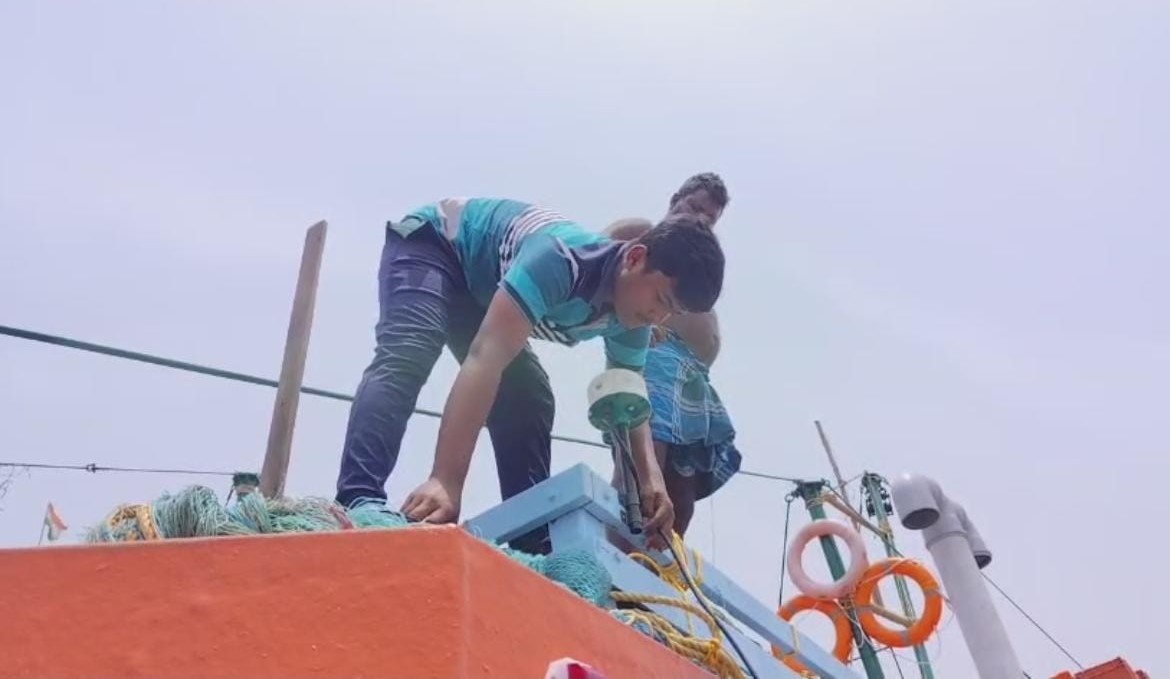Deep-sea fishermen from West Bengal’s South 24 Parganas now have a high-tech safety lifeline on board—the Satellite-Based Maritime Safety Assistant System, or Transponder, developed by the Indian Space Research Organisation (ISRO). This state-of-the-art device is being installed in trawlers to enhance communication, location tracking and emergency response capabilities in treacherous waters.
The Fisheries Department has already implemented the transponder system in 300 trawlers operating from Kakdwip subdivision. Authorities have confirmed that all trawlers in the district will soon be equipped with the device to ensure complete coverage.
Operating through satellite signals, the transponder eliminates dependency on mobile towers. This allows real-time, two-way communication between trawlers at sea and authorities on land—even from the remotest locations. In emergencies such as accidents, health crises, or severe weather, fishermen can now send distress messages that are received instantly for rapid response.
The transponder also enables early identification of fish-rich zones, including schools of hilsa—a major benefit as the hilsa season approaches. Fishermen can now fish more efficiently while avoiding danger zones.
Prevents accidental border crossing
One of the critical features of the system is boundary alerting. Previously, many Indian trawlers unintentionally entered Bangladeshi waters during storms or due to navigational errors, often leading to diplomatic trouble. Now, the transponder emits a warning when a vessel nears or crosses the international boundary, preventing such incidents.
“This technology is a game-changer,” said Surjit Bagh, Deputy Director of Fisheries (Marine), South 24 Parganas. “It was introduced after repeated incidents of trawlers drifting across borders during cyclones. Now, each trawler can be monitored in real-time.”
Designed with inclusivity in mind, the system supports all coastal languages of India, making it easy to operate for fishermen from various regions. It uses ISRO’s satellite network and GPS for accurate location tracking and uninterrupted emergency communication.
Pritam Panda, who is supervising the installation process in Kakdwip, said, “This device helps locate fish, avoid hazards, and send immediate alerts in case of fire or health issues.”
Local fisherman Vishnupada Das shared his thoughts: “Phones don’t work in the deep sea. But now, with this transponder, we can call for help during emergencies. It’s a real hope for us.”
Satinath Patra, secretary of the Kakdwip Fishermen’s Workers Union, also praised the initiative: “This is a blessing. Earlier systems had only one-way communication. Now, help can reach us faster with two-way messaging.”
As thousands of trawlers prepare to set sail for the hilsa season, ISRO’s transponder system is set to transform deep-sea fishing. With real-time monitoring, border alerts, GPS tracking, and emergency connectivity, it’s being hailed as a life-saving innovation for India’s coastal fishing communities.


